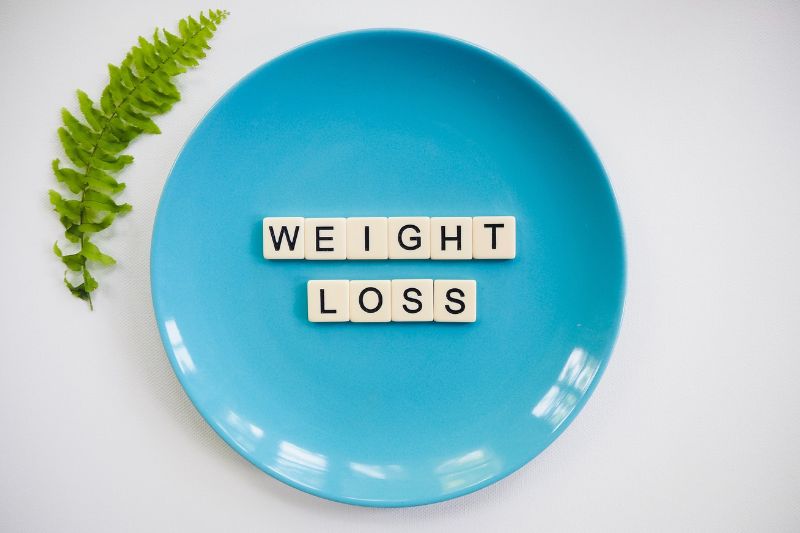No products in the cart.
Everything Weight Loss And More!

Losing weight can be a difficult and frustrating process. But it doesn’t have to be. There are many simple things you can do in your weight loss journey and keep it off for good.
Here Are 10 Tips To Help You Lose Weight:
1. Cut back on calories.
The most important part of losing weight is reducing your calorie intake. You need to burn more calories than you consume in order to lose weight. Cutting back on calories is the best way to do this.
2. Eat healthy foods.
Eating healthy foods is important for two reasons. First, it will help you cut back on calories. Second, it will provide your body with the nutrients it needs to function properly. Make sure to eat plenty of fruits, vegetables, and whole grains. Avoid processed foods, sugary drinks, and excessive amounts of saturated and unhealthy fats.
3. Get active.
Exercise is essential for weight loss. It helps you burn calories and gives you a healthy outlet for stress. Try to get at least 30 minutes of exercise every day, and consider incorporating sessions of weight loss with red light therapy into your regimen. If you can’t do this all at once, break it up into smaller chunks of time throughout the day.
4. Drink plenty of water.
Water is important for weight loss because it helps you feel full and prevents you from overeating. Aim to drink eight glasses of water per day.
5. Avoid fad diets.
Fad diets may help you lose weight in the short term, but they are not sustainable and can be unhealthy. Instead, stick to a healthy diet plan that you can stick with for the long term.
6. Avoid eating late at night.
Late-night eating can sabotage your weight loss efforts. If you must eat late at night, choose healthy foods like fruits or vegetables.
7. Control your portion sizes.
Eating large portions is one of the main reasons people gain weight. So make sure to control your portion sizes and only eat until you’re full.
8. Avoid sugary drinks.
Sugary drinks are high in calories and can contribute to weight gain. Instead, choose water or unsweetened tea instead of sodas, juices, and other sugary drinks.
9. Avoid eating out.
Eating out can be a major culprit when it comes to weight gain. Restaurant portions are often larger than necessary, and the food is usually high in calories, fat, and sodium. When you do eat out, make sure to choose healthy options and control your portion sizes.
10. Make sure you’re getting enough sleep.
Sleep is important for overall health and can also help with weight loss. Lack of sleep has been linked to increased appetite and cravings for unhealthy foods. Make sure you’re getting at least seven hours of sleep every night.
With the right mindset and approach, losing weight does not have to be a major struggle, and it is definitely achievable.
Here Are Some Tips To Help You On Your Weight Loss Journey:
1. Set realistic goals.
Setting realistic goals for yourself is important, so you don’t get discouraged along the way. If you have a lot of weight to lose, don’t expect to lose it all overnight. Instead, focus on losing a few pounds each week or month.
2. Find a support system.
Finding someone who will support and encourage you on your weight loss journey can be helpful. This could be a friend, family member, or even an online community.
3. Make healthy lifestyle changes.
Losing weight requires more than just dieting; it also requires making healthy lifestyle changes. This includes regular exercise, eating a healthy diet, and managing stress.
4. Be patient.
Don’t expect to see results overnight; weight loss takes time. However, be patient and stay focused on your goals; you will eventually reach your target weight.
5. Stay motivated.
It’s easy to lose motivation when trying to lose weight. So, find ways to stay motivated throughout your journey. This may include setting goals, tracking your progress, or finding a support group.
6. Seek professional help.
If you’re struggling to lose weight on your own, don’t hesitate to seek professional help. A registered dietitian or certified personal trainer can give you the guidance and support you need to reach your goals.
As a last resort, there are a number of different treatments that can help.
Bariatric surgery
One treatment option is bariatric surgery. Bariatric surgery is not a quick fix for weight loss. It is a serious operation that requires a lifelong commitment to healthy eating and regular exercise.
However, bariatric surgery can be an effective tool for people who are struggling to lose weight and keep it off. To understand the various types of procedures and their outcomes, comprehensive guides on bariatric treatments.
Studies have shown that people who have bariatric surgery are more likely to lose significant amounts of weight and keep it off long-term compared to those who try to lose weight through diet and exercise alone.
If you are considering bariatric surgery, it is important to work with a team of experienced medical professionals who can help you understand the risks and benefits of the procedure. Surgery is not right for everyone, so it is important to make sure that it is the right decision for you.
If you are considering bariatric surgery, the first step is to talk to your doctor about your weight loss goals and whether surgery is a good option for you.
Liposuction
Liposuction is a type of surgery that can help to remove excess fat from the body. It’s typically done as an outpatient procedure and doesn’t require a hospital stay. However, should you be interested in this procedure, be sure to do your research on liposuction cost.
Dermabrasion
Dermabrasion is a type of treatment that can help to improve the appearance of scars, wrinkles, and other blemishes on the skin. It involves using a special tool to sand down the top layer of skin.
Laser therapy
Laser therapy is another option for treating excess skin. This type of therapy uses focused beams of light to target problem areas. It can be used to tighten loose skin, reduce wrinkles, and even out skin tone.
Tummy Tuck
A tummy tuck is another surgical option that can help to get rid of excess skin and improve the appearance of your midsection.
In Closing
If you’re interested in any of these treatments, be sure to talk to your doctor to see if they’re right for you.















Leave a Reply